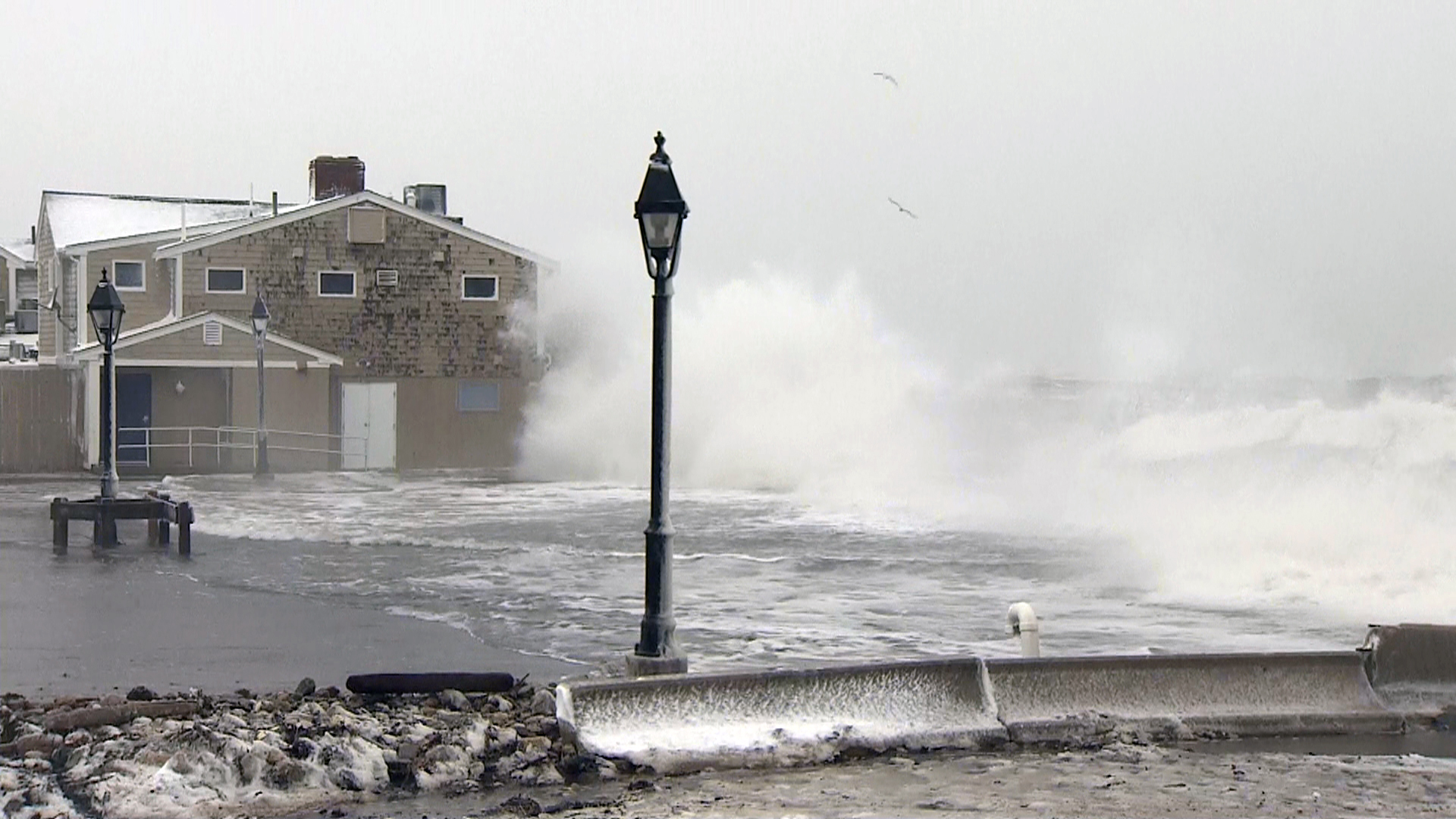A coastal community in Massachusetts finds itself in a frenzied state following a weekend tempest that washed away substantial amounts of sand, meticulously trucked in for a dune project costing nearly $600,000. This endeavor aimed to shield homes, roads, and vital infrastructure from the wrath of nature.
Over several weeks, Salisbury witnessed the delivery of 14,000 tons (12,701 metric tonnes) of sand for this project, which was completed a mere three days before the onslaught of Sunday’s storm, unleashing powerful winds, torrential rains, and coastal inundations across southern New England.
The Salisbury Beach Citizens for Change, instrumental in orchestrating and fundraising for the project, took to social media to herald the project’s conclusion last week, only to return to the platform after the storm. Despite the setback, they defended the project’s worthiness, asserting that the “sacrificial dunes” dutifully fulfilled their purpose, safeguarding some properties from the storm’s voracity.
This episode marks the latest in a series of severe storms afflicting the community and Massachusetts at large, already grappling with flooding, erosion, and infrastructure woes since January.
Sand replenishment remains the government’s favored approach to shore protection, supported by congressional allocations over the years, citing its efficacy in preserving lives, property, and bolstering the tourism sector.
Yet, detractors decry this method as intrinsically wasteful, perpetually replenishing sand that inevitably succumbs to erosion.
Experts warn that climate change portends more turbulent weather, including hurricanes, in the Northeast due to warming waters. Globally, rising sea levels since 1900, as highlighted by the United Nations, imperil hundreds of millions, while erosion exacerbates beach erosion, as noted by EU researchers.
Salisbury is not alone in witnessing its efforts washed away. Earlier this year, a New Jersey town, grappling with dune destruction, sought emergency approval for a steel barrier, previously erected in other vulnerable spots. However, the state rebuffed the request and penalized the town for unauthorized repairs, highlighting the contentious nature of beach protection strategies.
State Sen. Bruce Tarr spearheads efforts to secure $1.5 million in state funding to fortify Salisbury’s dunes, crucial for safeguarding a major roadway, water and sewer infrastructure, and hundreds of homes constituting 40% of the town’s tax base.
However, skepticism persists regarding the wisdom of incessantly replenishing sand. Resident Peter Lodi opined on social media that relying on sand is futile against nature’s whims, advocating for more sustainable solutions. In response, the beach group defended their actions, arguing for governmental accountability in beach protection endeavors.
The debate underscores the complexities of balancing natural resource management with community welfare in the face of escalating climate risks.
